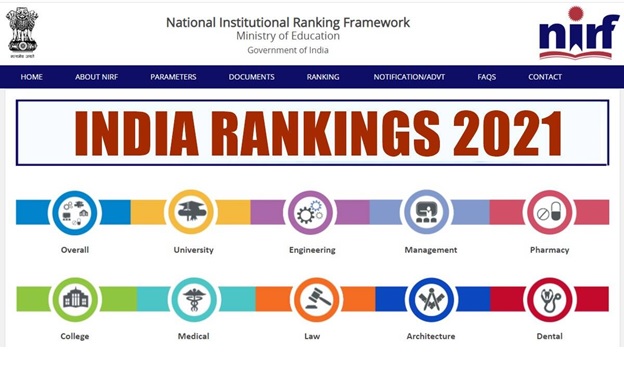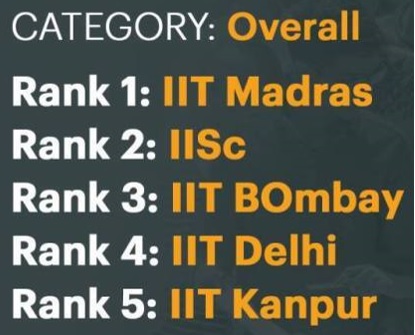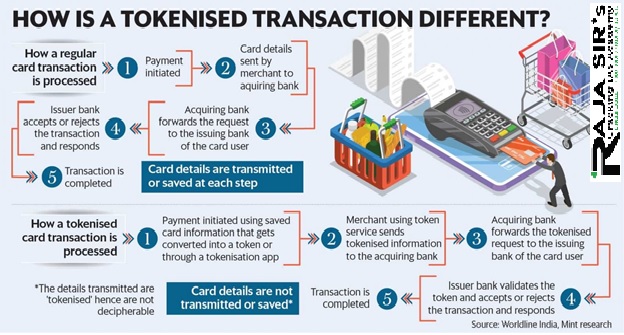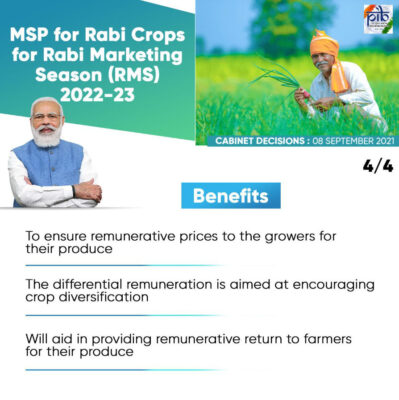- Home
- Prelims
- Mains
- Current Affairs
- Study Materials
- Test Series
 EDITORIALS & ARTICLES
EDITORIALS & ARTICLES
14th Sep 2021
WHAT IS NIRF, AND WHY DID THE GOVERNMENT DECIDE TO RANK UNIVERSITIES?
The Ministry of Education has launched the sixth edition of the National Institute Ranking Framework (NIRF).





 International Crops Research Institute for the Semi-Arid Tropics (ICRISAT) has been awarded the Africa Food Prize 2021.
International Crops Research Institute for the Semi-Arid Tropics (ICRISAT) has been awarded the Africa Food Prize 2021.
- IIT-Madras, IISc-Bangalore, and IIT-Bombay have emerged as the country’s top three higher education institutions.

- NIRF is the first-ever effort by the government to rank higher education institutions (HEIs) in the country.
- NIRF was launched in 2016. Earlier, HEIs were usually ranked by private entities, especially news magazines.
- Participation in NIRF was voluntary in the initial years, but made compulsory for all government-run educational institutions in 2018.
- Roughly 6,000 institutions participated in NIRF in 2021.
- All education institutions are assessed on five parameters:
- Teaching, learning and resources
- Research and Professional practices
- Graduation Outcomes
- Outreach and Inclusivity
- Peer Perception
- NIRF lists out best institutions across 11 categories – overall national ranking, universities, engineering, college, medical, management, pharmacy, law, architecture, dental and research.

- Indian Institute of Technology dominated the overall rankings, with seven of the top 10 positions.
- Overall rank:
- IIT-Madras ranked first, Indian Institute of Science, Bengaluru ranked second, followed by IIT-Bombay, IIT-Delhi, IIT-Kanpur, IIT-Kharagpur, IIT-Roorkee, IIT-Guwahati, Jawaharlal Nehru University and Banaras Hindu University.
- Among Universities:
- Indian Institute of Science was ranked one, followed by JNU, BHU, Calcutta University, Amrita Vishwa Vidyapeetham in Coimbatore, Jamia Millia Islamia in New Delhi, Manipal Academy of Higher Education, Jadavpur University, University of Hyderabad and Aligarh Muslim University at rank 10.

- Government constituted the committee to frame the New Drugs, Cosmetics and Medical Devices Act.
- The eight-member panel will be headed by Drug Controller General of India V.G. Somani.
- The committee will undertake pre-legislative consultations and examine the present Act, and submit a draft document for a de-novo Drugs, Cosmetics and Medical Devices bill.
- It is a national portal for Regulation of Air Pollution in Non-Attainment Cities.
- PRANA under National Clean Air Programme (NCAP) would support tracking of physical and financial status of city air action plan implementation.
- The portal has a dashboard of 7 thematic areas of city air action plans, PM10 performance, ambient air monitoring network, public grievance redressal portal, etc.
- It would disseminate information on air quality to the public.
- It will provide all information related to various policies/programmes/schemes/activities of the stakeholders along with progress made towards improvement in air quality across the country.
- It will be a platform for monitoring and feedback on all efforts made for air quality improvement.
- These new varieties have helped over 25 million smallholder farmers and crops have become more resilient to climate change & pest and disease outbreaks.
- The award carries a cash prize of $100,000.
- It recognises outstanding African individuals and institutions for their efforts in:
- Transformation Of Africa’s Foods Systems
- Promoting sustainable agricultural practices.

- C-295MW is a transport aircraft of 5-10 tonne capacity. It will replace the Avro aircraft of the IAF were first inducted around 60 years ago. The deal to buy C-295MW transport aircraft is expected to cost Rs 20,000 crore.
- Jointly executed by: Airbus Defence and Space and Tata Advanced Systems Limited.
- All aircrafts will be installed with the indigenous Electronic Warfare Suite.
- Airbus will supply the first 16 aircraft in flyaway condition from Spain while the remaining 40 will be assembled in India by TASL.
- RBI has extended tokenisation of Card-on-File (CoF) transactions — where card details used to be stored by merchants.
- In a CoF transaction, a cardholder has authorised a merchant to store his or her Mastercard or Visa payment details, and to bill the stored account.
- RBI has directed the merchants not to store card details in their systems from January 1, 2022.
- From January 1, 2022, no entity in the card transaction or payment chain, other than card issuers and card networks, should store the actual card data.

- It refers to replacement of card details with an alternative code called a ‘token’.
- Token is unique for combination of card, token requestor (the entity that accepts a request from the customer for tokenisation of a card) and the device.
- Tokenisation is allowed through mobile phones or tablets for all use cases and channels like contactless card transactions, payments through QR codes and apps.
- The tokens are generated by companies like Visa and MasterCard, which act like Token Service Providers (TSPs).
- They provide the tokens to mobile payment or e-commerce platforms so that they can be used during transactions instead of the customer’s credit card details.
- The token can be used to perform contactless card transactions at point-of-sale (PoS) terminals and QR code payments.
- It reduces the chances of fraud arising from sharing card details.
- The cardholder can get the card tokenised by initiating a request on the app provided by the token requestor.
- The token requestor will forward the request to the card network which, with the consent of the card issuer, will issue a token corresponding to the combination of the card, the token requestor, and the device.
 International Crops Research Institute for the Semi-Arid Tropics (ICRISAT) has been awarded the Africa Food Prize 2021.
International Crops Research Institute for the Semi-Arid Tropics (ICRISAT) has been awarded the Africa Food Prize 2021.
- The award was given for its work that has improved food security across 13 countries in sub-Saharan Africa.









 Latest News
Latest News General Studies
General Studies